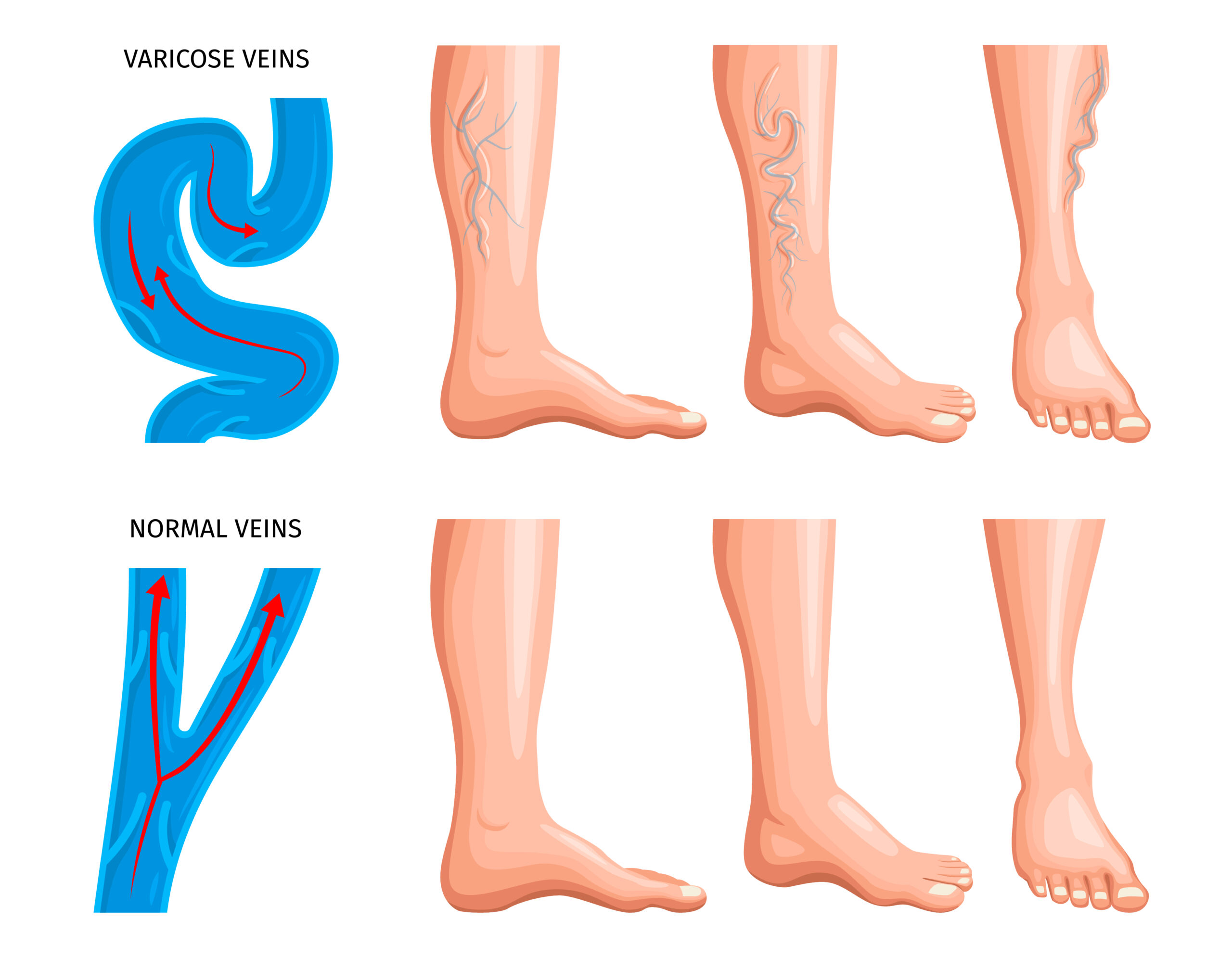Water is important for overall health, yet its function in maintaining vein well-being is neglected. Adequate hydration has an important role in keeping veins flexible and allowing free flow of blood. When dehydrated, the blood becomes more viscous, and veins find it difficult to carry the blood. The added pressure may lead to varicose vein formation or make them worse. Hydration is not likely to erase varicose veins, but it definitely promotes better circulation and limits the drawbacks of compromised venous function.
How Hydration Affects Blood Circulation
When you are adequately hydrated, your blood is at the proper consistency so that it can flow nicely through veins and arteries. Thick blood, as a result of dehydration, circulates slowly, putting more pressure on the veins. This increased pressure can compromise vein walls and cause varicose veins. By keeping the blood thin and minimizing unnecessary strain on veins, hydration is preventative in the formation and development of varicose veins.
The Role of Water in Vein Elasticity
Your veins must be elastic in order to allow normal blood flow. Dehydration stiffens veins and makes them less elastic, which hinders blood from flowing normally. When the veins are not stretchy, they are also prone to swelling, twisting, and varicose veins. Drinking sufficient water keeps veins elastic so that they can work normally and are less likely to cause varicose veins.
Does Drinking Water Reduce Varicose Veins?
While there is no direct evidence that drinking water can cure varicose veins, staying hydrated contributes to better circulation and overall vein health. Healthy veins are less likely to develop issues such as blood pooling and swelling, both of which contribute to varicose veins. So, while hydration alone may not eliminate varicose veins, it does support the body’s natural ability to keep veins strong and functioning properly.
How Much Water Should You Drink for Healthy Veins?
There isn’t a one-size-fits-all solution when it comes to water intake needs. Several factors, such as age, weight, and activity level, alongside weather conditions, determine the correct amount of water you need to consume as a basic recommendation, men should drink about 3.7 liters daily, equivalent to 13 cups, while women need to consume 2.7 liters which amounts to 9 cups.
Many people follow the 8×8 rule, indicating they should drink eight 8-ounce glasses of water each day. Your body is still the last word when it comes to water intake, in spite of the helpful tips that have been provided. If your body indicates thirst, then it needs water intake.
Simple Ways to Stay Hydrated
It is one thing to tell someone to stay hydrated, particularly for those who do not tend to drink water naturally. These are some easy tips to make sure you consume enough fluids during the day:
● Start and End Your Day with Water – Drinking a glass of water in the morning and another before bed helps keep hydration levels steady.
● Carry a Water Bottle – Keeping a reusable water bottle with you at all times serves as a reminder to drink more frequently.
● Flavor Your Water – If plain water feels boring, add natural flavors like lemon, mint, or berries to make it more appealing.
● Monitor Your Hydration – Check your urine color; clear or light yellow indicates good hydration, while dark yellow suggests you need more water.
● Limit Diuretics – Alcohol and caffeinated drinks can dehydrate the body, so balance them out by drinking more water.
The Impact of Dehydration on Vein Health
Dehydration can severely affect the health of veins, resulting in thick, pressurized blood. This not only makes circulation slow but also poses a threat of blood clots and venous insufficiency. The heart must struggle to push blood, which could put pressure on veins—particularly in the lower extremities, where varicose veins occur most frequently.
Hydration as Part of a Holistic Approach to Vein Health
Water consumption represents a fundamental step, yet it is only one part of preserving vein health. Healthy vein operation depends on multiple lifestyle habits that also help minimize varicose vein symptoms.
● Eating a Balanced Diet – Fiber-rich foods and anti-inflammatory nutrients promote circulation and reduce swelling.
● Regular Exercise – Physical activity, especially walking and stretching, keeps blood moving efficiently.
● Wearing Compression Stockings – These can help improve circulation and reduce discomfort in those prone to varicose veins.
● Elevating Your Legs – Raising your legs while resting can help reduce pressure and swelling.
Final Thoughts
Although drinking water by itself will not entirely prevent or heal varicose veins, it is an important component in maintaining overall vein health. Drinking enough water keeps the blood at the proper consistency, keeps veins elastic, and minimizes unnecessary stress on circulation. By making hydration a daily routine and adding other healthy lifestyle habits, you can encourage improved circulation and move toward healthier veins.




